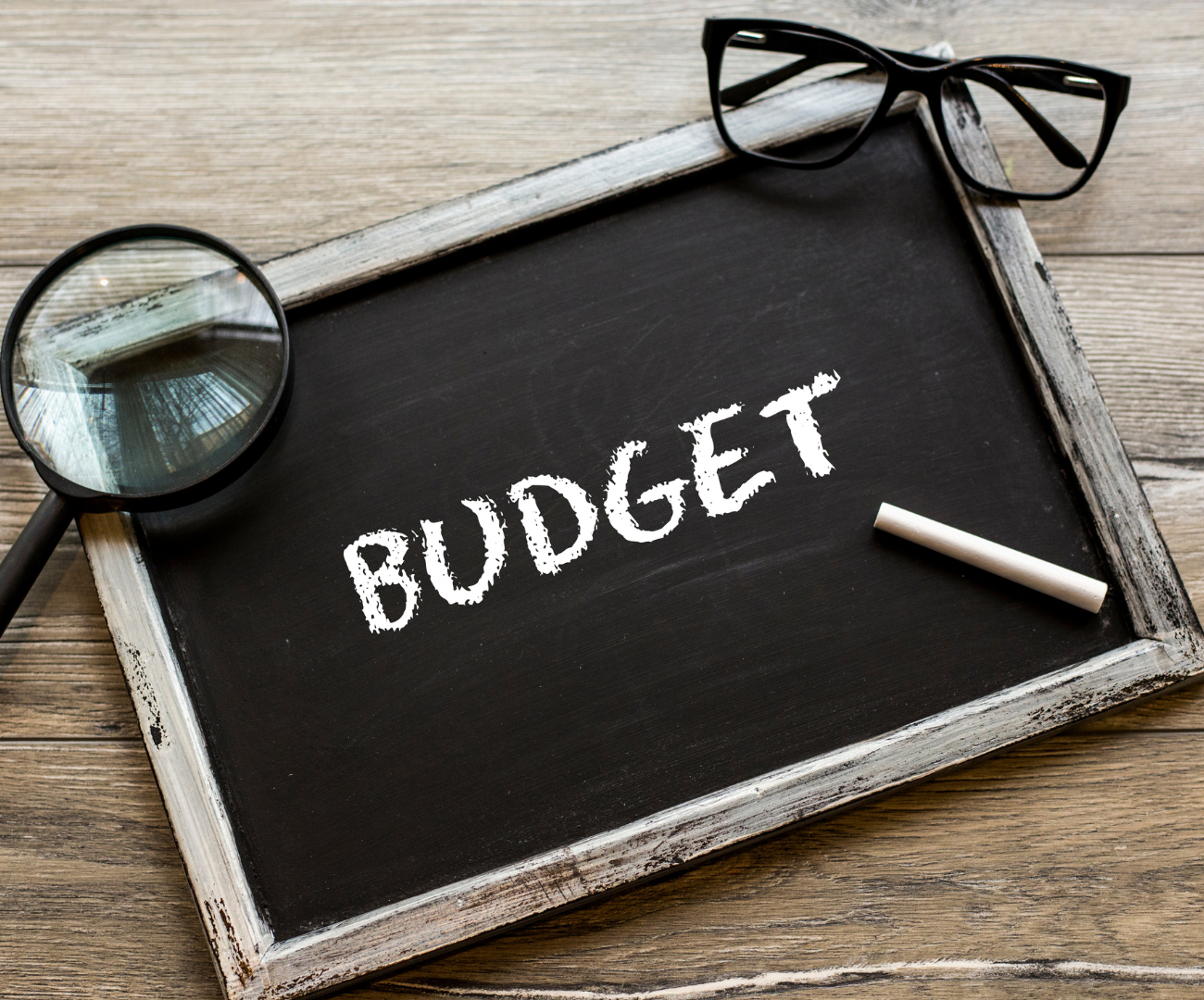As a business owner, you know that budgeting is an important part of ensuring your company's financial health. But when it comes to events, it can be tricky to know where to start.
Event budgeting can be tricky and stressful, especially if you're not used to it. There are a lot of different factors to consider, and it can be difficult to know where to start. No idea how to go about event budgeting? Don’t worry, in this blog post, you will find all you need to know about event budgeting and more.
Here are a few tips to help you budget for your next event, no matter its size.
What is Event Budgeting?

Event budgeting is the process of allocating financial resources to cover the costs of an event.
This includes
- Estimating costs,
- Setting a budget,
- And sticking to it.
It is a key part of event planning and can help to ensure that an event runs smoothly and within its allotted budget.
There are a number of factors to consider when budgeting for an event, such as the cost of venue hire, catering, entertainment, decorations, and so on. It is important to get accurate estimates for each of these items in order to create a realistic and achievable budget.
Once the budget has been set, it is important to stick to it as closely as possible in order to avoid overspending. No doubt it can be a challenging task, but it is essential in ensuring that an event runs smoothly and does not exceed its financial constraints.
By carefully estimating costs and setting a reasonable budget, event planners can help to make sure that their events are successful and enjoyable for all involved.
Benefits

The benefits of budgeting your event are many and varied. Perhaps the most obvious benefit is that it can help you to stay within your overall budget.
- By creating a budget for each individual element of your event, you can more easily keep track of where your money is being spent. This can help you to avoid overspending in one area and coming up short in another.
- In addition to helping you stay within your budget, budgeting can also help you to allocate your resources more effectively. By knowing how much you have to spend on each element of your event, you can make sure that you are getting the most bang for your buck. For example, if you have a limited amount to spend on entertainment, you can make sure that you book the best possible band or DJ for your event.
- Event budgeting can also help to alleviate some of the stress that comes with planning an event. By having a clear idea of what needs to be paid for and when, you can avoid last-minute scrambling and potential financial disasters. And, if something does go over budget, you will at least have a better idea of where the extra money needs to come from.
So there you have it – just a few of the many benefits of budgeting! Whether you are planning a small gathering or a large-scale event, taking the time to create a comprehensive budget can save you time, money, and headaches down the road.
Best 5 Event Budgeting Tips to Know

Here are the 5 things you should know when planning a budget for your upcoming event.
1. Determine your Goals
When budgeting for an event, it is important to know your event goals and key performance indicators (KPIs). By knowing your goals and KPIs, you will be able to accurately allocate your resources and create a successful event.
Your event goals should be specific, measurable, achievable, relevant, and time-bound. That is, they should be SMART goals.
- For example, a goal for your event could be to increase brand awareness by 10% within the next year. A KPI for this goal could be the number of social media mentions or website visitors during and after the event. Once you have established your goals and KPIs, you can begin to allocate your resources.
Make sure to consider all aspects of your event, including venues, catering, entertainment, marketing, and staffing. Have a realistic understanding of what each of these elements will cost so that you can stay within budget while still achieving your desired results. By being aware of your goals and KPIs from the start, you can create a successful event that meets all of your objectives.
2. Look Around for a Wider Perspective
When it comes to planning your event, looking at past and similar events is a great way to get an idea of how much you should be spending. This will help you avoid overspending or underspending on your event, and can give you a good starting point for creating your budget.
Looking at past events can also help you anticipate potential costs that you may not have considered before. This is especially important if you're planning a unique or unusual event, as there may be hidden costs that you're not aware of. Doing your research upfront can save you a lot of hassle (and money) down the line.
So, when you're budgeting for your next event, take some time to look at what similar events have cost in the past. This will give you a better idea of what to expect, and help you avoid any nasty surprises.
3. Consider All your Expenses
When you're planning an event, it's important to factor in all of your expenses. This includes everything from selecting a platform to marketing and promotion.
By taking all of these costs into account, you can ensure that your event is successful and stays within budget.
One of the first expenses you'll incur is the cost of selecting a platform. There are a number of different factors to consider when choosing a platform, such as the features you need and the price. Be sure to compare different options before making your final decision.
Also, keep in mind that your virtual event budget may help save a lot of costs as compared to in-person events. In addition, there are multiple virtual event budget templates available online which can make budgeting easier for you.
If you are looking for an all-in-one event management platform, then Oreed is one of the best options available out there. With Oreed,
- You will be able to find all the event management capabilities you are looking for on one single platform.
- You will have a 360 degrees level of understanding of your customers which will help you enhance engagement and attendance at your upcoming events.
- You will be able to make your event fun and exciting with our gamification features.
- Moreover, from attendees registration to online payment and certificate generation, Oreed will take care of it all.
Once you've selected a platform, you'll need to start promoting your event. This can be done through a variety of channels, such as social media, email marketing, and paid advertising. The cost of promotion will vary depending on the channels you use and the amount of effort you put into it. Make sure to allocate enough money in your budget for effective promotion.
Finally, don't forget to factor in other miscellaneous expenses that may come up during the planning process. These can include things like website hosting fees, Eventbrite fees, and audio/visual equipment rental. By being prepared for these additional costs, you can keep your event on track and within budget.
4. Align Expenses with Expected Revenues
As you consider how to balance your budget, it is important to keep in mind that expected revenue must cover all expenses. This means that if your event is not generating enough revenue, you will need to either find a way to increase income or reduce costs.
There are a few ways to go about this.
- First, you can take a close look at your expenses and see if there are any areas where you can cut back. For example, maybe you can find a cheaper venue or reduce the number of catering options.
- Alternatively, you can try to increase revenue by charging more for tickets or offering sponsorships.
If your event is already generating good income, then you may just need to be patient and wait for the revenue to catch up with the expenses. In the meantime, you can use savings or other sources of funding to cover the difference.
5. Create a Contingency Fund
If you're planning an event, it's important to add a contingency fund to your budget. This will help you cover unexpected costs that may come up during the event. Adding a contingency fund to your budget may seem like an unnecessary expense, but it can actually save you money in the long run.
By being prepared for unexpected costs, you can avoid going over budget and putting your event at risk. So if you're planning an event, be sure to add a contingency fund to your budget!
Final Thoughts
So if you are drafting your virtual event budget, make sure to check out Oreed. You can also book a demo to see all that you can get on one single platform.
Promote lifelong learning through Oreed by experiencing the most powerful all-in-one training and development intelligent platform that streamlines all your organization's learning, training, and development activities in one place.





